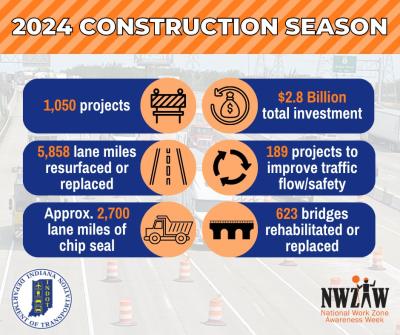The construction industry is poised to oppose a new IRS proposal that would subject mobile machinery to what is being called a “stealth” tax.
“Off-road equipment, such as mobile cranes and concrete pumpers, used in construction has been exempt from federal excise and fuel taxes because it is not considered to be a highway vehicle,” said Phil Thoden, director of congressional relations, tax and fiscal affairs for the Associated General Contractors of America (AGC).
“However, the IRS proposed a rule in June that would end this exemption for any nonfarm equipment that could be used on roads, whether or not its primary use is off-road.”
Thoden said the proposed regulation, announced by the IRS on June 6, would subject equipment to the new vehicle excise tax, which amounts to 12 percent of the purchase price; motor fuel taxes of 18.4 cents per gallon on gasoline and 24.4 cents per gallon on diesel; an excise tax on heavy-duty tires and an annual heavy-vehicle tax based on weight.
“AGC members with off-road equipment would be hit hard by this change and so AGC opposes this proposed stealth tax on construction companies and is sending comments to the IRS in opposition,” said Thoden. “There has been a groundswell of concern from the construction industry, as well as those in the trucking and drilling industries. My guess is that this will have a greater impact than the IRS imagines. A construction company that needs to buy a $100,000 mobile crane would have to pay $12,000 in taxes at the point of purchase.”
Thoden said the AGC is currently gathering information from its members to determine how much of their equipment uses the roads and for what length of time.
As a result of the growing opposition since the proposal was announced, the IRS has extended its deadline for receiving comments and requests for a public hearing until Dec. 4. The cutoff date had initially been set for Sept. 4.
The regulation, known as REG-103829-99, contains proposed rules relating to the definition of a highway vehicle for purposes of various excise taxes. A copy of the regulation is available on the IRS Web site at www.irs.gov/pub/irs-regs/10382999.pdf .
The IRS summary states the regulations will affect vehicle manufacturers, dealers and lessors; tire manufacturers; sellers and buyers of certain motor fuels; and operators of heavy highway vehicles.
An IRS spokesman, who preferred to remain anonymous, said a public hearing has already been requested and will likely be held about a month after the Dec. 4 deadline. He said the IRS will probably render its final decision on whether to proceed with the proposed regulations a month after the public hearing is held.
The IRS proposal states that:
“The [current] mobile machinery exception is intended to apply to vehicle chassis that serve solely as a permanent mount for job site machinery, such as job site cranes. In creating an exception for mobile machinery vehicles, the regulations assumed that vehicles that transport mobile machinery, like vehicles that are designed for off-highway transportation, would make minimal use of the public highway and thus would receive only minimal benefit from the construction and maintenance of the highway system.
“However, it has become apparent that the assumption that most mobile machinery vehicles would make minimal use of the public highway is incorrect,” the proposal continues. “Mobile machinery vehicles generally are constructed using highway chassis that are modified only as necessary to accommodate the mounting of the job site machinery. These vehicles are subject to the same licensing, safety and other non-tax regulations as are other highway vehicles. Mobile machinery vehicles carry their load, typically heavy job-site machinery, from job site over the public highway and their ability to use the public highway is in no way limited or impaired. Therefore, they derive the same benefit from and cause the same type of damage to the public highway as other highway vehicles and for tax purposes should be treated the same as other highway vehicles.”
The Associated Equipment Distributors (AED), one of many trade groups opposing the federal tax recommendation, does not agree with the IRS’s reasoning pertaining to the need to tax mobile machinery.
“AED is working with other organizations to put together a coalition to challenge the proposed IRS action,” said Christian A. Klein, AED’s Washington counsel. “As part of our effort, we’re working to educate staff at the associations, which represent companies that purchase equipment about the issue.”
Klein said AED’s initial perception is that the tax would have a very significant impact on all sectors of the construction industry from manufacturers to distributors and purchasers. He stressed that adding a 12-percent tax to the cost of mobile equipment will hurt the demand for products.
“That, in turn, will have important ramifications for dealers and manufacturers who are already suffering from the current softness in the market,” said Klein. “Of course, because the equipment will become more expensive — $12,000 more expensive per $100,000 in value — contractors and others will be less likely to replace aging equipment with newer and better machines. That will undermine productivity and potentially interfere with worker safety.”
Klein added that because the vehicles would lose their tax exemption, the fuel used to run them also would be taxed, resulting in an increase in operating costs to contractors and a hike in the cost of construction projects.
“AED is a strong advocate of the federal highway program, which relies on user fees, such as the gas tax and truck excise tax, for its funding. We are very committed to the idea that those who use the roads should be the ones that pay for them,” said Klein. “That was the reasoning behind the original adoption of the excise tax. However, the IRS proposal would abandon the idea of the user fee. Rather than taxing vehicles that make substantial use of roads, the IRS would tax vehicles that are capable of using the roads — even if they don’t. The proposal completely disregards construction industry practice, which is that mobile machinery remains on job sites for extended periods of time.”
Tony Obadal, who also serves as Washington counsel for the AED, said the proposed regulation stands in direct contradiction to the Bush administration’s efforts to increase equipment purchasing through the depreciation bonus.
“The drop-off in business investment has been the major cause of our economic slowdown,” said Obadal. “The IRS proposal to levy a tax of several hundred million dollars on the construction industry will send ripples through the economy and slow the recovery. By putting a tax on new equipment sales, the administration is undermining all the hard work it did to get the economic stimulus bill enacted into law.”
The Job Creation and Workers Assistance Act of 2002, signed by President Bush on March 8, included a 30-percent depreciation bonus aimed at prompting equipment buyers to rekindle their previous purchasing habits.
Scott Brown, director of communications for the Associated Builders and Contractors (ABC), said organizations such as his encourage the government to look at other options instead of thinking of new ways to tax small businesses.
“Small businesses fuel our economy and so often these taxes are counterproductive,” said Brown.
Michael Pearlstein, manager of federal regulations for the ABC, said the proposal would definitely have a negative impact on the association’s members. However, he said it’s too early to speculate about how far-reaching or severe the impact could be.
“This proposal has been on everyone’s radar screen for a while and we had been hearing feedback about it,” said Pearlstein. “We just hope the IRS takes the concerns of the construction industry, as well as those in the utility and oil-drilling industries, into account before they make the final decision.”
The Association of Equipment Manufacturers (AEM) is also among the long list of groups that have already filed comments with the IRS.
“AEM also raised the issue in a letter to Treasury Secretary Paul O’Neill as a followup to a meeting we had with him on the state of the economy,” said Nick Yaksich, vice president of government affairs. “Our principal concern is that these vehicles are primarily off-road and there is no rationale for thinking otherwise. Secondly, the administration passed a depreciation bonus to encourage the same type of vehicles they are now proposing to tax. We are working with a coalition of contractors, dealers and other manufacturers to oppose this regulation and we will be filing additional comments by Dec. 4.”
The Office of Advocacy for the U.S. Small Business Administration also is taking an active role in trying to understand the potential impact of the proposed regulations. Thomas Sullivan, chief counsel for advocacy, noted that his office was created by Congress to act independently within the federal government.
“Our job at the Office of Advocacy is to make sure that informed small businesses have a seat at the table when important policy decisions, like this new IRS rule, are made,” said Sullivan. “In this case, because it appears that this regulation will have a much broader impact than the IRS contemplated, we are encouraging affected small businesses to submit comments on this issue. My office will also spread the word as far as possible so that small businesses with a stake in this proposed rule will be aware of its repercussions.”
Sullivan said his office has not filed its comments on the regulations yet, but is in the process of doing so. The office was instrumental in joining other groups in asking for the Dec. 4 extension.
“I stated in our request for extension my belief that there is evidence indicating that this proposed rule is a major rule with an impact of over $100 million,” added Sullivan. “If so, the IRS must analyze the costs and benefits of its proposal — something they have yet to do. The response we have received from industry groups in our preliminary inquiries has convinced us that the IRS needs to take another look at this issue.”
Sullivan said the federal highway construction has been supported since 1956 through highway use taxes on fuel, tires, trucks and trailers and the annual vehicle tax.
“Mobile machinery means large machines with wheels that are not generally meant for highway use,” said Sullivan. “The categories of machinery that are exempt have developed over the years through court cases and through letter rulings by the IRS. The proposed rule would withdraw this exemption and machinery that is no longer exempt would be taxed. Based on our conversations with small business owners and their representatives, we think this change would involve millions of dollars and a large amount of machinery.”
Today's top stories














